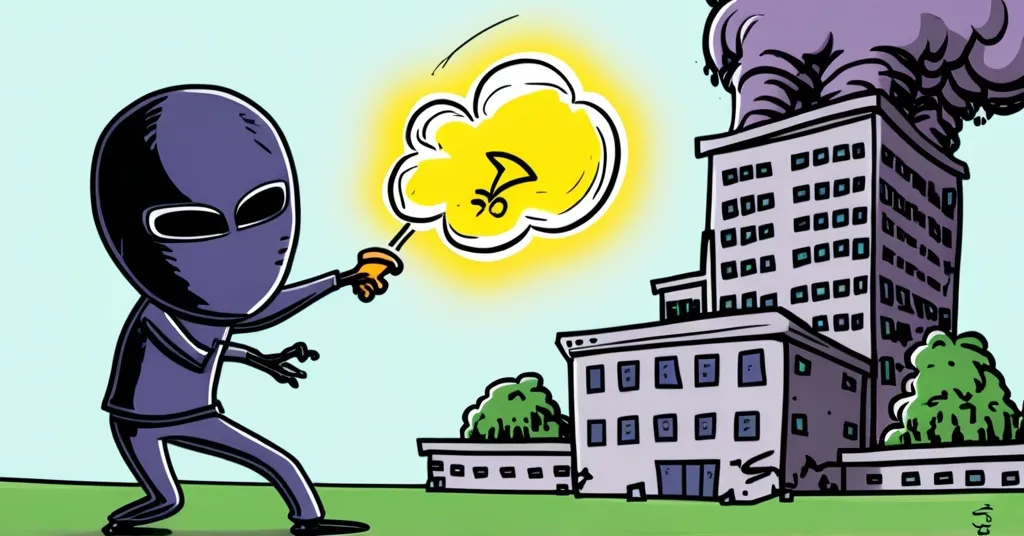Former Helius Engineer Exposes Founder’s Alleged IP Theft and Toxic Workplace

Former Helius Engineer Accuses Founder of Toxic Behavior and Intellectual Property Theft
Miles Smith, a former lead infrastructure engineer at Helius, has publicly accused the company’s founder, Mert Mumtaz, of unethical behavior, including intellectual property theft, workplace toxicity, and career sabotage, following his departure in 2023.
- Miles Smith accuses Mert Mumtaz of unethical behavior.
- Claims of intellectual property theft from a Solana hackathon.
- Allegations of workplace toxicity and corporate misrepresentation.
Helius, a key player in the Solana ecosystem, develops tools to enhance blockchain performance. QuickNode, on the other hand, is a service that allows companies to use another service’s infrastructure while showing their own domain, effectively hiding performance issues. Miles Smith, who joined Helius with high hopes of contributing to the burgeoning Solana community, left the company in 2023 under contentious circumstances. On January 30, 2025, Smith took to social media to air his grievances against Mert Mumtaz, detailing a series of accusations that have rocked the crypto world.
Smith’s allegations include the theft of intellectual property from Xray, a team that achieved second place at the 2023 Solana hackathon, Grizzlython. He claims that Mumtaz not only stole the intellectual property but also misrepresented Helius’s technical capabilities. According to Smith, Helius used QuickNode to mask poor internal performance, effectively pulling the wool over the eyes of customers and investors. “This matters because this is how Helius pretends to have the best uptime, when really they have shitty internal uptime and mask it by paying QuickNode to pick up the slack,” Smith stated.
The workplace at Helius, as described by Smith, was far from the collaborative environment one might expect in the crypto industry. He recounted an incident where Mumtaz allegedly screamed verbal abuse at a Cloudflare sales representative, illustrating what Smith claims was a toxic atmosphere. This toxicity didn’t end with his departure; Smith alleges he was fired by text message and faced delays in receiving his final paycheck, a situation that fits the description of constructive dismissal, where an employee is forced to resign due to the employer’s hostile actions.
Smith’s ordeal didn’t end with his exit from Helius. He accuses Mumtaz of sabotaging his fundraising efforts for his new startup by giving negative references to potential investors. This move, Smith claims, severely hampered his career prospects post-Helius, highlighting the darker side of the crypto industry where personal vendettas can impact professional trajectories.
Despite these serious allegations, Helius continued to grow, securing $9.5 million in a Series A funding round in 2024, with plans to expand its team from 14 to 18 members. This financial success raises questions about investor due diligence and their awareness of the company’s internal issues. Can a company thrive on unethical practices in the long run? This case suggests that investors might not always dig deep enough before opening their wallets.
The Solana ecosystem, known for its high-performance blockchain designed for decentralized applications, provides the backdrop for this drama. Hackathons like Grizzlython are vital for fostering innovation, but they also expose participants to potential ethical pitfalls, as highlighted by the alleged intellectual property theft.
In response to these allegations, Helius has remained silent, but the industry’s response has been one of concern. Experts emphasize the need for robust corporate governance and ethical leadership in the fast-paced world of blockchain technology. The allegations against Helius serve as a stark reminder of the challenges facing the crypto industry, where the promise of decentralization and freedom must be balanced with accountability and integrity.
As the crypto industry continues to evolve, it’s crucial to remember that even in a space driven by disruption and innovation, ethical conduct remains the cornerstone of sustainable growth. The allegations against Helius highlight the need for vigilance and strong governance to ensure the sector’s long-term viability and trust.
Here are some key takeaways and questions that arise from this situation:
- What accusations did Miles Smith make against Mert Mumtaz?
Smith accused Mumtaz of intellectual property theft, workplace toxicity, corporate misrepresentation, and career sabotage.
- How did Helius allegedly misrepresent its technical capabilities?
According to Smith, Helius used QuickNode to mask its poor internal uptime, falsely claiming to have the best uptime.
- What was the impact of these allegations on Smith’s career?
Smith claimed that Mumtaz obstructed his fundraising efforts for his new startup by giving poor references to potential investors.
- What was the outcome of Helius’s Series A funding round in 2024?
Helius successfully raised $9.5 million to grow its staff and operations.
Editorial Note: At “Let’s Talk, Bitcoin,” we are committed to transparency and accountability in the crypto space. Stories like these underscore the importance of ethical behavior and strong governance in building a sustainable and trustworthy industry.



